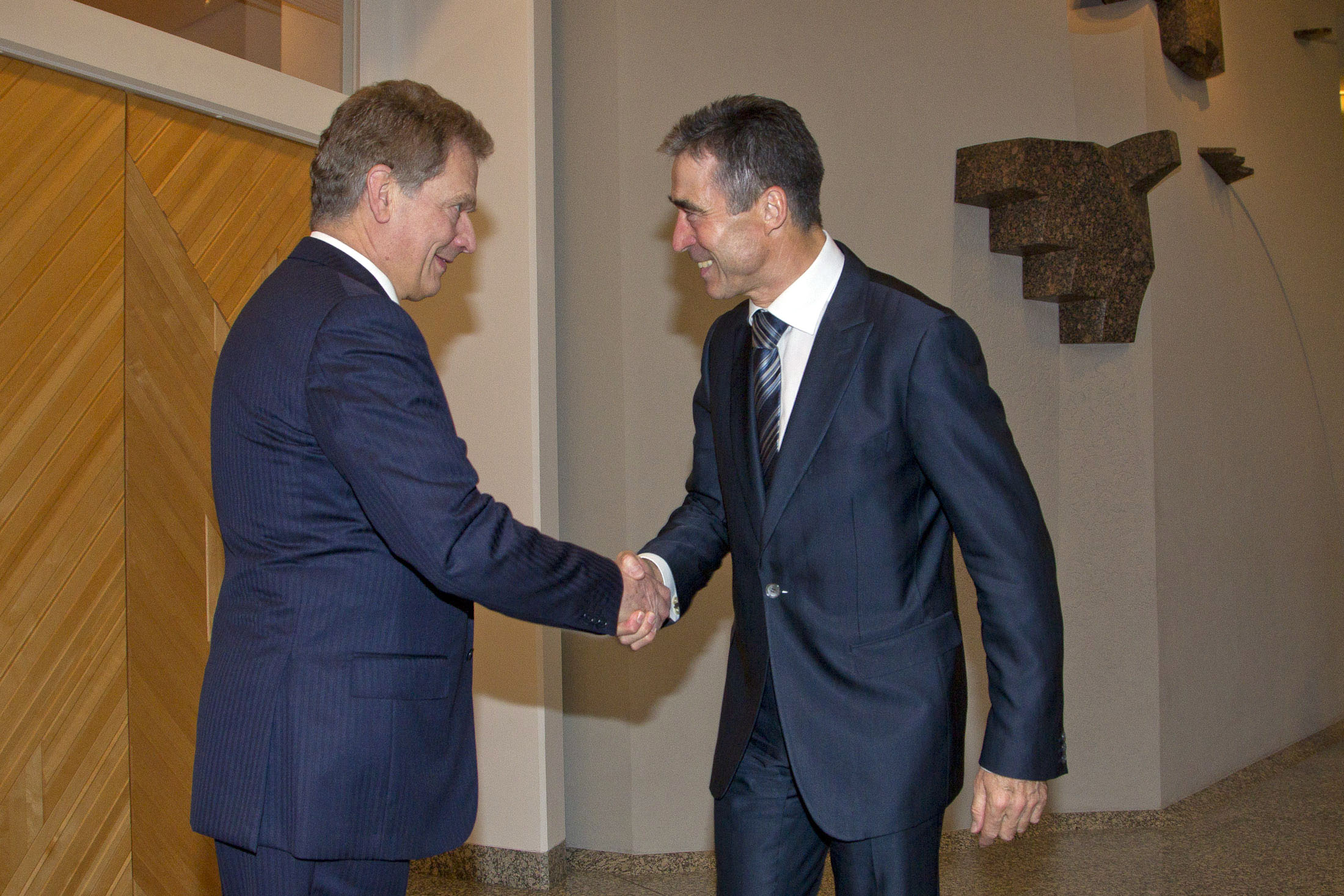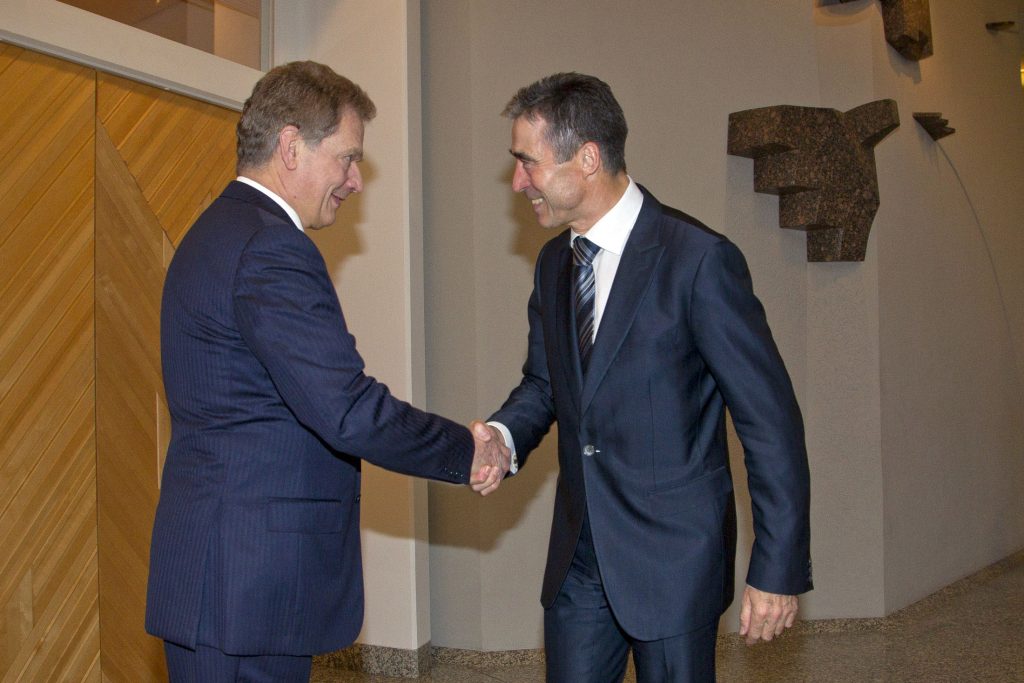 [A]s far as the Finnish president is concerned, Finland now enjoys the best of all possible worlds: it is satisfied with the present level of cooperation with NATO ; it sees no reason to change its policy in the near future; and it prefers not to rock the boat in its relationship with Russia, a country that has clearly warned Finland of consequences should it start moving towards membership.
[A]s far as the Finnish president is concerned, Finland now enjoys the best of all possible worlds: it is satisfied with the present level of cooperation with NATO ; it sees no reason to change its policy in the near future; and it prefers not to rock the boat in its relationship with Russia, a country that has clearly warned Finland of consequences should it start moving towards membership.
In other words, “in the context that history now places Finland”, the best option, according to the Finnish president, is to sit on the fence. . . .
[P]erhaps the most vital question for a prospective NATO member will be the following: would it be better for it to be a member in the Alliance if a military crisis breaks out, or would the membership in NATO instead act like a magnet that would draw a military attack upon it? During the Cold War, the Finnish answer was clear: our own national defense had to be credible enough not to leave room for speculation. A potential attacker would need to be convinced that Finland would in all circumstances be able and willing to guard her territory against any and all military encroachments.
Our own military capability was then backed up by a strong Sweden. Today, that situation is radically different. Over the past decade and a half, Sweden has built down its national defense to the extent that its military capabilities can now be seriously questioned. The situation is perhaps still somewhat better in Finland, but it is a fact that unless we get considerably more resources in the second half of this decade, we simply cannot maintain the credibility of our national defense.
It is perhaps ironical that the Finnish and Swedish national defense policies and strong national defense postures that stabilized the security situation in northern Europe during the Cold War are now doing just the opposite: their credibility is now in serious doubt, and therefore the Finnish and Swedish military contributions no longer produce stability but rather instability.
Membership in NATO for Finland and Sweden would bring back the military credibility that is now quickly fading away. Hostile powers are more likely to attack a country whose abilities are doubtful than one who can draw on the collective defense commitments of an entire 28-member Alliance. For example, were both Finland and Sweden members of NATO, an attempt to take over Gotland or vital parts of the southern Finnish shoreline would not be only a matter for Sweden or Finland but for the Alliance as a whole. In an escalating crisis, Finnish and Swedish membership in NATO would thus have a strong stabilizing effect in the whole of northern Europe.
Image: President of Finland Sauli Niinisto and NATO Secretary General Anders Fogh Rasmussen, Nov. 14, 2012 (photo: NATO)
